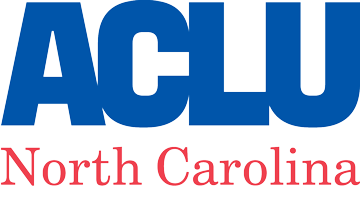As part of the N.C. Bail Reform Working Group, the Council has created a network of faith leaders (lay and clergy) across the state who are taking a dual approach to cash bail. While working to educate the public and mobilize for policy change, they are also posting bail for those who qualify in order to mitigate the deleterious effects of the current system.
Overview
Racial injustice and systemic racism have impacted the cash bail system for far too long. Black and Latino men are assigned on average higher bail amounts than white men for similar crimes, and those who cannot pay land in jail. But it is not only the ones accused of a crime – the families and community are impacted as well. “Detention of any length has profound impacts on people’s families and their ability to pick up when they are released, and trying to do that in the context of massive unemployment is impossible, especially for those communities that were already struggling to access the resources and opportunities they deserve.” (Hayden Nelson-Major, Independence Foundation fellow, ACLU of Pennsylvania)
Now is a time to really work towards becoming a Beloved Community – a place where everyone can experience what is feels like to be a beloved child of God. Working to achieve reform of the current bail system is a tangible project where all persons of faith can have a major impact.
Council Resources
Cash Bail Study Guide for Faith Communities
The information in this resource is the initial information on Money Bail Reform Efforts prepared by members of the North Carolina Council of Churches and representatives of the Bishop’s Committee on Prison Ministry for the Episcopal Diocese of North Carolina.
Denominational Resources
Episcopal Church Diocese of NC
Money Bail Advocacy
United Church of Christ
Cash Bail Bond Reform
Mennonite Church USA
The Landscape of Policing – Incarceration and Bail
Presbyterian USA
Cash Bail
United Church of Christ
Resolution Calling for Cash Bail System Reform
United Methodist Church
Criminal Justice Reform
More Resources
How Big a Role Does Money Play in North Carolina’s Bail System?
This report examines criticisms of money-based bail systems in North Carolina, emphasizing concerns about public safety, wealth-based detentions, and racial disparities. It outlines the state’s pretrial release options, including secured bonds, despite a preference for nonfinancial conditions.
Field Guide to Legislative Advocacy
We gratefully acknowledge NC Second Chance Alliance for providing the information found in the field guide.
Cash Bail Reform Issue Statements
The Council takes positions on issues through policy statements that inform, guide, and frame our work. Policy statements are adopted by our governing body, often upon the recommendation of one or more of the Council’s program committees which are made up of representatives of our member bodies.



